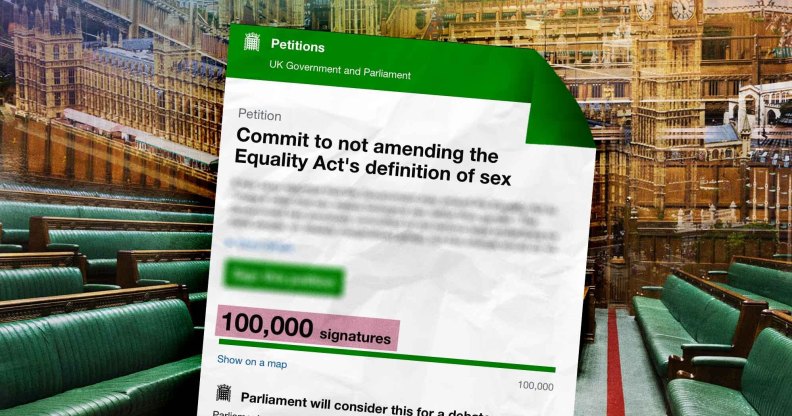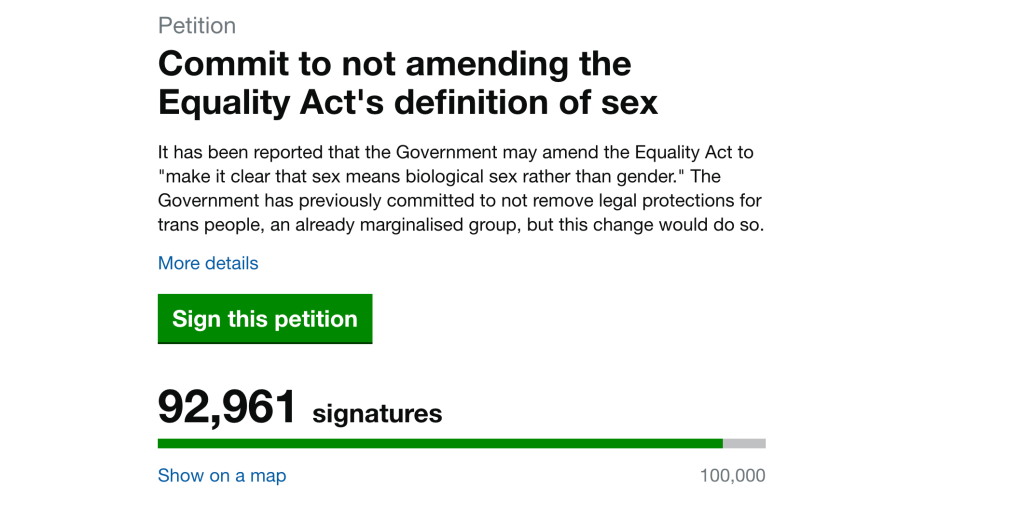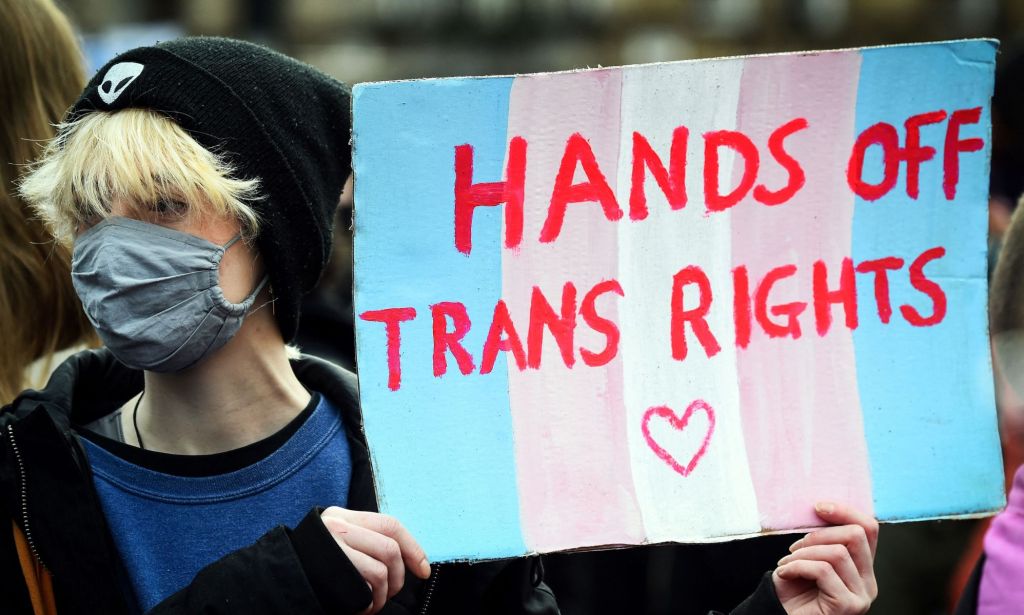Thousands of furious Brits sign petition demanding Tory government leave Equality Act alone

More than 100,000 people have signed the petition, and it will now be considered for debate in parliament. (Credit: UK Gov)
A petition urging the government not to amend the Equality Act to change the definition of “sex” to “biological sex” has hit 100,000 signatures.
The petition, which the government responded to in January 2023, explaining that changes to the Equality Act are “not necessary”, will now be considered for debate in Parliament.
The petition gained traction after it emerged on Tuesday (4 April) that equalities minister Kemi Badenoch had asked the Equality and Human Rights Commission (EHRC) for its advice on the “benefits or otherwise” of amending the Equality Act to define sex as “biological”.
The petition reads: “Currently, the [Equality] Act protects trans people from discrimination on the basis of both sex and ‘gender reassignment’, regardless of whether they have undergone medical transition or hold a Gender Recognition Certificate.
“It can allow trans people to access single-sex spaces such as [domestic violence] shelters, bathrooms and hospital wards.
“The proposed change would remove a legal protection for trans people and encourage discrimination.”
In its response on 25 January, the government claimed it is “committed to upholding Britain’s long-standing record of protecting the rights of individuals against unlawful discrimination”, claiming the act “makes it clear that providers have the right to restrict use of spaces on the basis of sex and gender reassignment where this is justified”.

The Equality and Human Rights Commission faced criticism after publishing a letter with its advice to Badenoch on Tuesday, which outlined that redefining ‘sex’ in the Equality Act to mean ‘biological sex’ would “create rationalisations, simplifications, clarity and/or reductions in risk for maternity services, providers and users of other services, gay and lesbian associations, sports organisers and employers”.
The EHRC advised that this move “merits further consideration”.
The letter also stated: “There is no straightforward balance, but we have come to the view that if ‘sex’ is defined as biological sex for the purposes of Equality Act, this would bring greater legal clarity.”
The letter, from EHRC chairwoman Baroness Kishwer Falkner, acknowledged that trans people who hold a Gender Recognition Certificate (GRC) have their gender recognised as their legal sex. However, changing the definition of sex could undermine how these certificates are used.
“As things stand, a women’s book club, for instance, may have to admit a trans woman who had obtained a GRC … On the biological definition, it could restrict membership to biological women,” Falkner wrote.
Following the EHRC publishing its advice on changing the definition of sex in the Equality Act, the government has said it is considering its options. It is understood that no decision has been made.
LGBTQ+ activists, including former EHRC employees, have spoken out about the letter, with some telling PinkNews that they are horrified by the idea of potential changes.
Grey Collier, a former EHRC legal director, described the idea of changing the Equality Act to define sex as biological “legally illiterate”.
Writing on Twitter, Collier said: “The proposed change in the law is nonsense on stilts. The suggestion is legally illiterate, unworkable and is just another way of using trans people’s actual lives as a pawn in the culture wars.
“It would overturn some of the purposes of the Gender Recognition Act and make it possible to discriminate against trans people in a whole range of circumstances where it is currently outlawed.”
Collier added that any changes to the Equality Act could provoke more hatred towards the trans community.
“Due to the hostility whipped up by a few vocal anti-trans activists and most mainstream media outlets, many trans people already live in fear of being attacked just going about our daily lives,” they said.

A spokesperson for the EHRC told PinkNews: “Our response to the minister for women and equalities’ request for advice, on the definition of the protected characteristic of sex in the Equality Act 2010, suggests that the UK government carefully identify and consider the potential implications of this change.
“Should the UK government wish to pursue work in this area, we recommend detailed policy and legal analysis be undertaken, in compliance with the Public Sector Equality Duty and with due regard to any possible disadvantages for trans men and trans women.
“We look forward to working with the government and others to find a way forward on these important issues, but recognise that these decisions sit with the UK government and UK parliament.”

